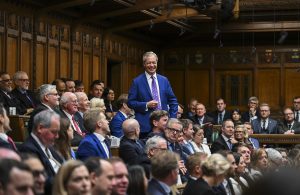In the Spring Statement 2019 [1], the Chancellor of the Exchequer, Philip Hammond MP, announced that the UK is going to shift towards low-carbon heating. The Future Homes Standard, set to be introduced by 2025, will likely move away from gas heating towards electric alternatives. This follows a report published by the Committee on Climate Change [2] which recommended that no new homes be connected to the gas grid by 2025. The gas industry needs to take action now in order to remain relevant.
Policymakers’ approach to the low carbon transition is undermining gas
The transition away from gas is being accelerated due to climate concerns. The conversation now revolves mostly around heat electrification and the affordability of renewable electricity. It is rarely mentioned that 96 per cent of non-domestic renewable heat in the UK is provided by bioenergy such as biomass boilers and green gas.[3]
The country needs to be reminded of the benefits of gas
Although renewable generation is making progress, it is still an intermittent source of energy. Given the suspension of Wylfa and Moorside nuclear projects, having an alternative source of flexible energy is increasingly important. After the projects’ cancellations, the Parliamentary Under Secretary of State at the Department for Business, Energy and Industrial Strategy, Lord Henley [4], was questioned about how the Government will meet the UK’s future energy needs. His response made no mention of gas. This, when combined with the Spring Statement’s ban on gas boilers, suggests that the benefits of gas are being overlooked. This is particularly unfortunate as technologies like biogas both reduce carbon emissions and capture methane released from organic waste. Disconnecting homes from the gas grid would limit the potential of this renewable energy source.
Inaction now will cost the industry
Now is the time to take action. The Future Homes’ Standard has yet to be finalised and the Government will launch a consultation on its proposed changes later this year. Action from industry can help ensure that gas remains relevant and continues to play a role in the UK’s future energy mix.
Brevia Consulting provides straightforward political advice and support to businesses and organisations.
Discover how Brevia can provide public affairs support to your organisation by calling the Brevia Energy Team on 020 7091 1650 or emailing contact@brevia.co.uk.
[1] HM Treasury, Spring Statement 2019: Written Ministerial Statement, 13 March 2019, Link
[2] Committee on Climate Change, UK Housing: Fit for the future?, 21 February 2019, Link
[3] Renewable Energy Association, Bioenergy is the ‘little-known leader’ in British renewables, 26 March 2019, Link
[4] Lord Henley, Hansard, 7 February 2019, WA, Link



